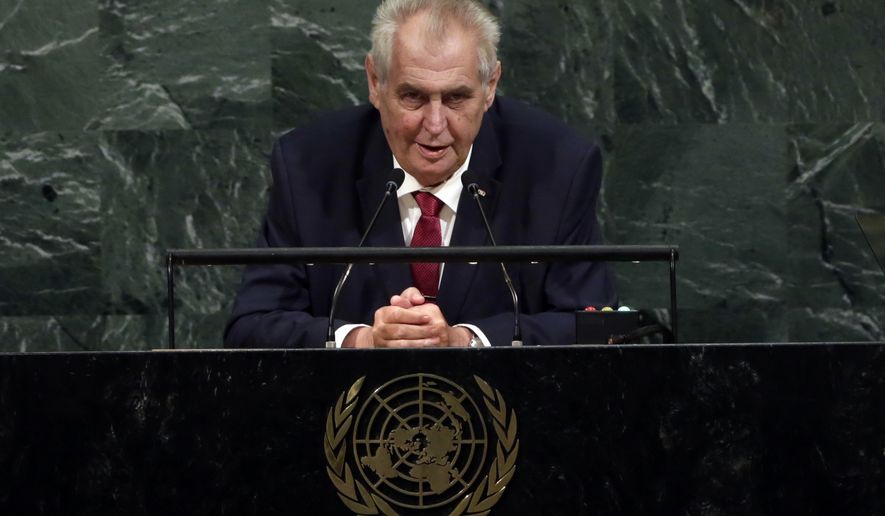Since the collapse of the Soviet Union and the Warsaw Pact decades ago, the United States has pointed to the Czech Republic as a beacon of relative prosperity and success in Eastern Europe.
But an upcoming October parliamentary election may change that. The pivotal nation in Central Europe is attractive for foreign direct investment, but it’s not clear for how long.
As with all Central and Eastern Europe nations once dominated by the leviathan to the east, first the Soviet Union and now Russia, corruption has always been a problem for the Czechs. Unfortunately, this scourge is growing once again.
A 2014 EU report singled out the Czech Republic as lagging in its corruption scores. The Global Competitiveness Index 2016-2017 warns of favoritism, lack of transparency, mistrust in politicians and the unreliability of the legal framework in the country. Transparency International’s annual Corruption Perceptions Index demoted the Czech Republic by 10 places in 2016-17, citing a weak judiciary and stagnating anti-corruption legislation. And it may get worse if opaque, pro-Russian parties do well in the upcoming vote.
One of the hallmarks of the ex-Soviet countries is the reign of the self-serving elite, which evolved from the old communist “nomenklatura” — the top party cadre. Oligarchs usually run the country, skimming off the top.
Unfortunately, in the Czech Republic, powerful business interests are coming into power. Exhibit A is Andrej Babis, a very influential billionaire. His ANO party and the powerful media empire he controls are ascendant. On Oct. 20 and 21, Czech voters will choose the members of the Chamber of Deputies, which will elect the prime minister. Opinion polling suggest ANO is the country’s most popular political party, making Mr. Babis the favorite to be the next prime minister.
The rise of ANO to power won’t help the already gloomy political environment, generating the biggest conflict of interest in the country’s post-1989 story. Ordinary Czechs are sick of pervasive power abuses but appear about to give power to a “Babisconi” (a play on the former Italian PM Silvio Berlusconi’s name). Like the Italian, Mr. Babis is viewed as a billionaire media mogul who is more interested in his own business interests than in cleaning house.
Another corrosive influence is the uncomfortably close relationship of President Milos Zeman with the Kremlin. Soviet and Russian security services’ involvement in European politics is legendary. Russian President Vladimir Putin, who worked in neighboring East Germany, would like nothing better than to have outsize influence on a NATO member seen as a model for Central European success. Currently, Mr. Zeman, a sympathizer of Mr. Putin who has supported Russia’s policies in Syria and Ukraine, may be re-elected in January 2018.
The West imposed sanctions on Russia after the annexation of Crimea and the subsequent support of the pro-Russian secessionist rebellion in eastern Ukraine. Mr. Zeman has gone so far as to criticize those sanctions, calling them “stupid and ineffective.”
Allowing Kremlin confidants into the inner sanctums of Czech political power sets a dangerous precedent. It is no secret that Martin Nejedly, chief executive of the Czech branch of the Russian energy firm Lukoil, is a close confidant of President Zeman.
Mr. Babis and Mr. Zeman could be the agents of change to move the Czech Republic away from the EU and NATO and into the Russian bear’s iron embrace. Before bringing to power a government that accelerates the decline of the rule of law and politicizes the court system further, Czech voters should consider the inevitable fruit of their choice. Elections have consequences. The consequences of this election could be a weakening of NATO and the EU as we know them today.
• L. Todd Wood is a former special operations helicopter pilot and Wall Street debt trader, and has contributed to Fox Business, The Moscow Times, National Review, the New York Post and many other publications. He can be reached through his website, LToddWood.com.




Please read our comment policy before commenting.